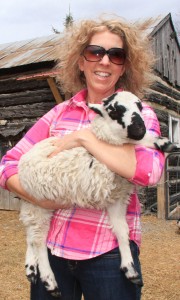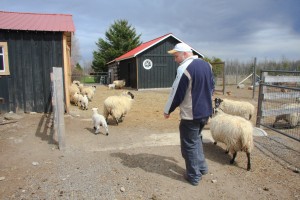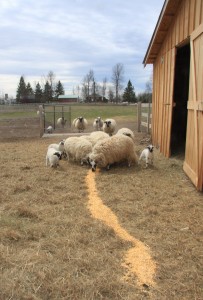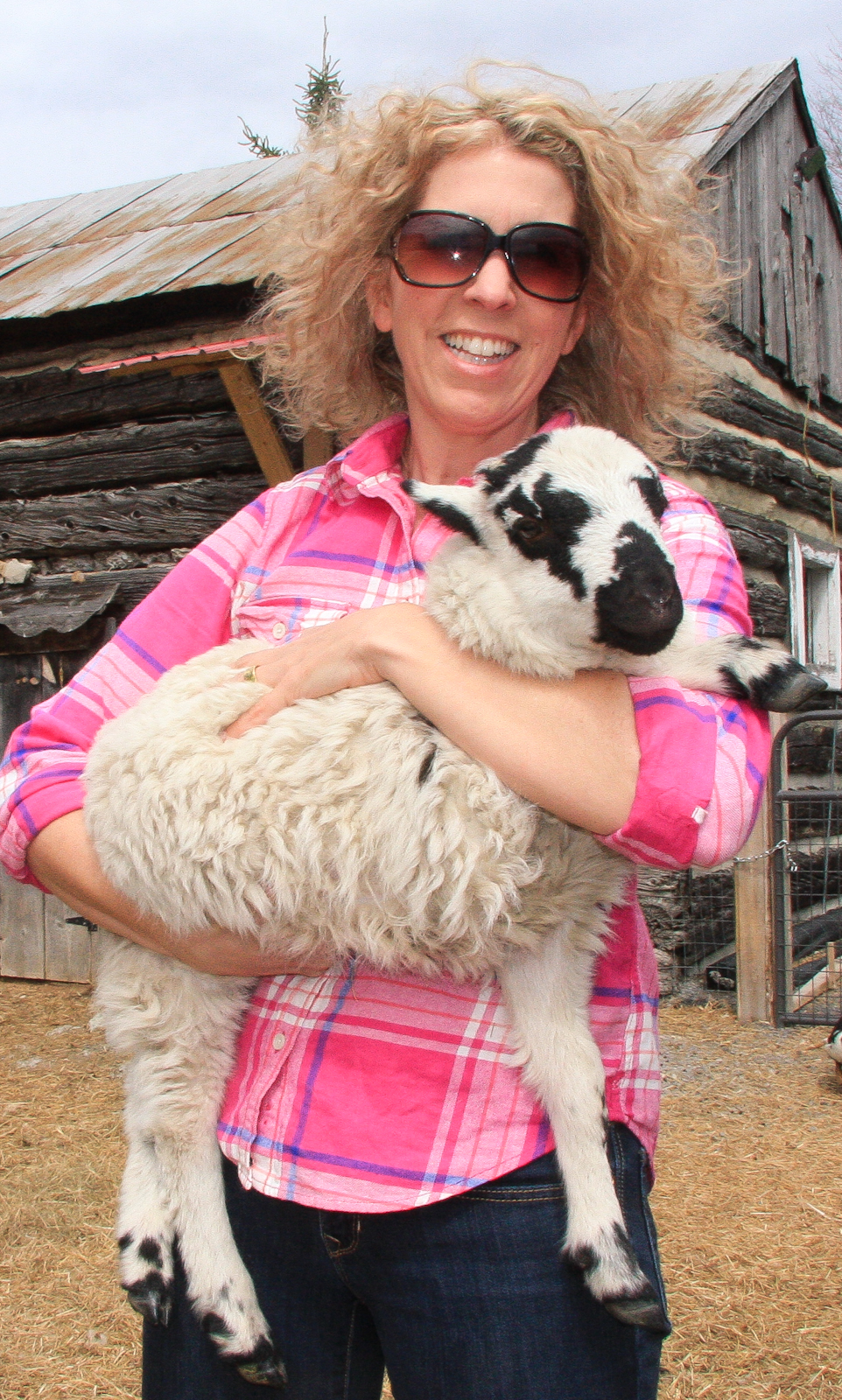 It was clear by the tire impressions left in the tall grass that others had stopped at that same place by the side of the road. I’m guessing they stopped for the same reason we did: to ogle the dozen or so brand-spanking new lambs in the farmer’s field.
It was clear by the tire impressions left in the tall grass that others had stopped at that same place by the side of the road. I’m guessing they stopped for the same reason we did: to ogle the dozen or so brand-spanking new lambs in the farmer’s field.
Located just west of Kemptville on Highway 43, I pass the property regularly and admire it for the cherry red metal roofs and charcoal stain of its tidy outbuildings. I have watched the hard work of its owners pay off in beauty, charm and animal husbandry. The place is obviously loved.
Even though I didn’t know the inhabitants, I recognize my regular drive-bys and looky-loos weave subtle connections into the story of my own experience. I hear it in the comments of people who pass by my old house, a work in progress, by foot, on bicycle, by bus and car. If I’m working out front, they’ll often stop to ask questions, offer historical information, or comment on how much they enjoy watching the changes.
I think we all have certain homes and properties that we keep tabs on, whether we consciously realize it or not. We observe, discuss changes, and imagine and construct our own stories when we lack hard facts. Once we recognize where someone lives (“Oh yeah! You live in the house on the main street, on the river, the two-story one that’s been under renovation for a few years. I know it.”), we move subtly closer to being friends and farther from being strangers. Our homes act as calling cards, as letters of introduction.
Yesterday, I roared past the field, then slammed on the brakes and pulled a u-turn. My animal-mad youngest in tow, we hopped out and were surprised by the docile nature of the mothers and their young. A few minutes later a man came walking down the fence line towards us, coffee in hand. He introduced himself as Sam, the guy who, along with his wife and kids, owns the place.
 Sam always knew he wanted to live on a large rural property. Two and a half years ago he made the leap from suburban to country living, first leaving a subdivision in Barrhaven (nine backyards touched his), then finally Greely, when the adjoining greenbelt was slated for development. Here his ample acreage borders a couple of properties, but now they’re much farther than a stone’s throw away. He has room to breathe and to raise Scottish Blackface sheep, laying hens, and muscovy ducks and plant and tend a modest apple orchard. He opened the gate and invited us in for a tour.
Sam always knew he wanted to live on a large rural property. Two and a half years ago he made the leap from suburban to country living, first leaving a subdivision in Barrhaven (nine backyards touched his), then finally Greely, when the adjoining greenbelt was slated for development. Here his ample acreage borders a couple of properties, but now they’re much farther than a stone’s throw away. He has room to breathe and to raise Scottish Blackface sheep, laying hens, and muscovy ducks and plant and tend a modest apple orchard. He opened the gate and invited us in for a tour.
Like many other ranchers and farmers, Sam has a day job. He owns two locations of Broadway Bar and Grill (Kemptville and Stittsville), and spends the rest of his time with his family and his animals. He says he’s not one to lounge around, he needs something to do, and would rather look after the sheep than veg in front of the television.
His affection for his animals is plain and reciprocated. He calls them and they come running. He brings out food and they stampede. While the breeding sheep have names, the younger ones do not. “I don’t want to bond with them too much,” he says. They are, after all, raised to be sold as meat. The bulk of the lambing for the season is complete, just one last mamma awaits her turn. And how can you tell when they’re ready to birth? “The way they move. They’re restless,” he says. I empathize with the poor thing. “I thought she was going to go last night, but no.”
 In another month Sam will pay a hired man $5 a head to shear the sheep. That man will, in turn, sell the wool to the co-op for $7 per pound. You have to be good and fast to make money at that business.
In another month Sam will pay a hired man $5 a head to shear the sheep. That man will, in turn, sell the wool to the co-op for $7 per pound. You have to be good and fast to make money at that business.
Sam’s wife was due back at any moment with a rooster, the newest addition to the farm. In a couple of weeks he expects to have a sign out on the road offering eggs for sale, using the age-old honour box system. In the summer, along the same stretch of road, a number of growers offer fresh fruits and vegetables from self-serve roadside stands. Stopping to check out the vendors is a highly pleasurable and personal part of rural living. Plus it takes the guesswork out of seasonality. If it’s in season, it’s on the stand.
Sam leaves for a moment and returns with a dozen fresh eggs. He hands them to me, refusing payment, hoping I’ll become a regular client when the sign goes up.
I am glad to have met the man who paints the buildings, builds the fences, raises the animals and stewards this land. I will happily buy eggs because it will give me an excuse to stop by and see what else he’s been up to.
And maybe next time, I’ll bring my work boots and gloves and make myself useful.
